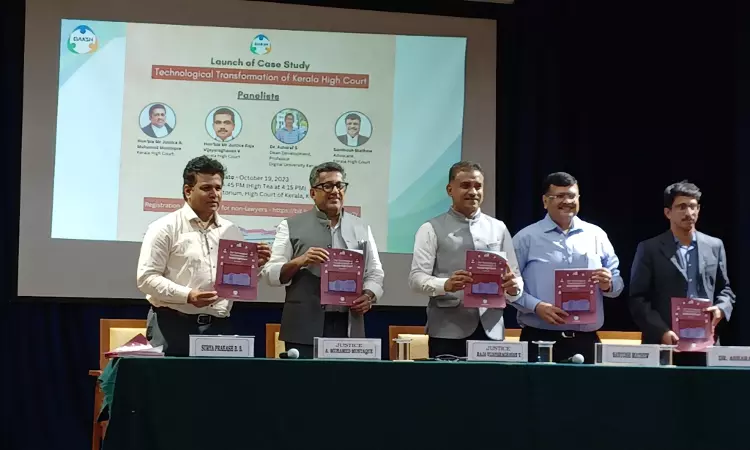'‘No Other High Courts Have This’': DAKSH's Panel Discussion On 'Technological Transformation of Kerala High Court'
Navya Benny
19 Oct 2023 9:57 PM IST

Next Story
19 Oct 2023 9:57 PM IST
"The design of the e-courts system we have implemented in Kerala High Court is not merely the architecture, but our vision behind the same. Our approach is our vision, and that is our design," Justice A. Muhamed Mustaque quipped, during a Panel discussion by Bengaluru-based think tank and research institution DAKSH on 'Technological Transformation of Kerala High Court' today. The event launched...
